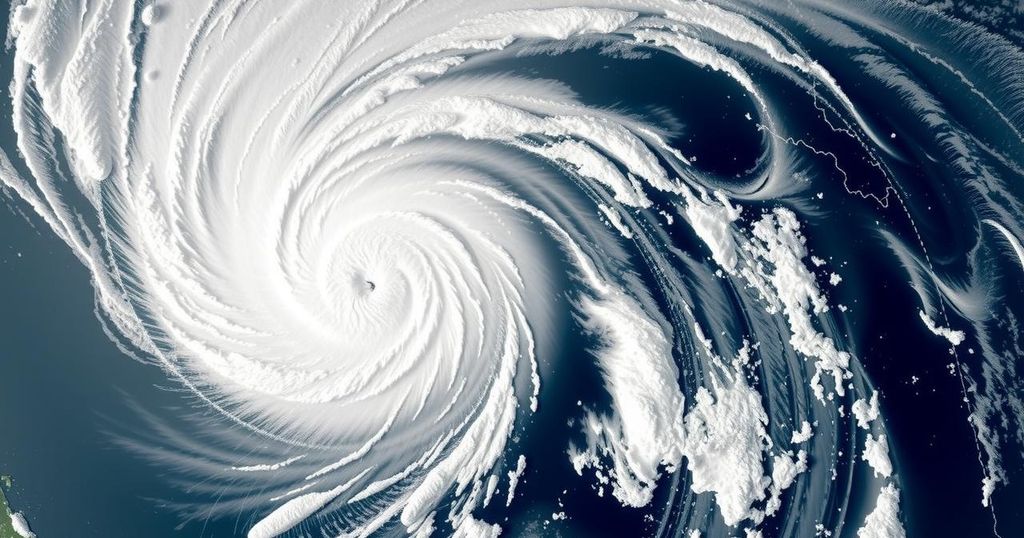Tropical Cyclone Chido Strikes Southern Africa: Flash Update
Tropical Cyclone Chido made landfall in Mozambique on December 15, 2024, with wind speeds of 260 km/h and heavy rain, affecting 1.7 million in Mozambique and 440,000 in Malawi. The cyclone will impact southern Malawi with heavy rain and strong winds before dissipating near Zimbabwe on December 17. Humanitarian efforts are underway to assist affected populations.
On December 15, 2024, Tropical Cyclone Chido made landfall in Mozambique, classified as a Category 4 cyclone. It struck approximately 35-40 kilometers south of Pemba in Cabo Delgado Province, delivering formidable winds reaching 260 kilometers per hour and intense rainfall measuring 250 millimeters within 24 hours. The cyclone poses threats to approximately 1.7 million individuals in Mozambique and 440,000 in Malawi, with impacts expected to extend into nearby regions. The UN and its partners are actively supporting local governments in their response efforts.
As the cyclone transitions into a tropical storm, the southern regions of Malawi are forecasted to experience heavy rainfall and strong winds over the following two days. Specifically, areas in Malawi may receive up to 100 millimeters of rain and wind gusts ranging from 80 to 100 kilometers per hour. There is a significant risk of flooding and mudslides in Mozambique and Malawi, and forecasts predict that remnants of Chido will dissipate near Zimbabwe by December 17.
In addition to Mozambique and Malawi, countries such as Angola, Botswana, the Democratic Republic of the Congo, Eswatini, Tanzania, and South Africa have been warned of impending heavy rainfall stemming from other weather systems. Cyclone Chido previously affected the Comoros Islands, where it resulted in limited flooding and injuries. The international airport on Anjouan reopened shortly after the passage of the storm, although internal flights remain suspended. Monitoring of the cyclone continues to be a priority for local meteorological services to mitigate risks associated with its effects in affected areas.
Tropical Cyclone Chido developed in the southeastern Indian Ocean and intensified into a severe cyclone, impacting several countries in the region. As it advanced, it caused significant concern for communities in Mozambique and Malawi due to the high population density and vulnerability of these areas. Historical data indicates that cyclones in this region often lead to severe consequences such as property damage and loss of life, thereby necessitating pre-emptive measures and timely responses from humanitarian organizations. The dynamic nature of such storm systems further complicates preparedness efforts.
Tropical Cyclone Chido presents serious challenges for the southern African region, particularly for Mozambique and Malawi. Approximately 2.14 million individuals are at risk due to the projected path of the cyclone, with significant rainfall and wind conditions expected to cause flooding and infrastructure damage. Collaborative efforts among local and international agencies are critical for effective emergency response and relief measures. Continuous monitoring of weather conditions and public advisories will remain crucial in safeguarding communities vulnerable to such natural disasters.
Original Source: reliefweb.int




Post Comment